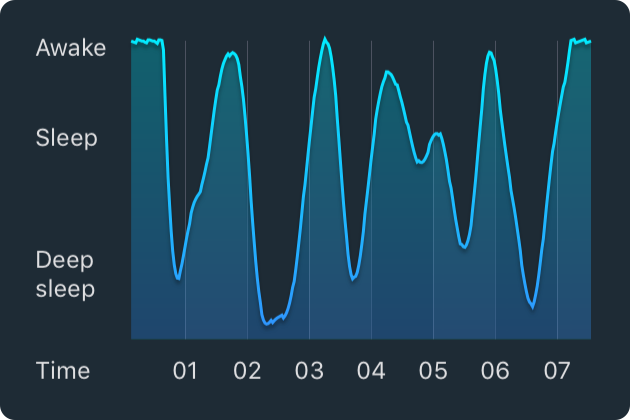If You Have a Sleep Tracker You Should Read This Before Going to Bed Tonight

By:
If you rely on a sleep tracking device (like a Fitbit) or app (like Sleep Cycle) to tell you about the quality of your sleep, you're in for some disappointing news.
These trackers claim to calculate the quality of your sleep by telling you when you're in "deep sleep" or REM sleep, and all the stages of sleep in between. Sleep Cycle in particular will show the user a graph charting their sleep throughout the night:
 Sleep Cycle - sleepcycle.com
Sleep Cycle - sleepcycle.com
There's just one problem, though.
One expert claims these apps really can't calculate this kind of information.
If you're looking to determine the hours of actual sleep you're getting, then sleep trackers are good, since their main function is detecting movement. The app/device assumes that less movement = more sleep, which is fine.
But there's really no way the app is able to determine the quality of your sleep.
Dr. W. Christopher Winter, a sleep specialist, spoke to Lifehacker about these sleep apps and devices after testing them. According to his findings, as reported by Lifehacker, "All of the gadgets could tell when he went to bed and when he woke up, but none of them could reliably tell the different stages of sleep (like REM or dreaming sleep) from each other."
ATTN: has reached out to Sleep Cycle for comment about Dr. Winter's claim, and we will update this story when they respond.
If you're looking for patterns in your sleep, or the duration of your sleep, then these apps/devices can definitely help you.
Dr. Winter said one woman's Fitbit helped her determine that although she felt as though she couldn't possibly have slept more than an hour, she actually slept for six, which was confirmed by an actual lab test. And Dr. Winter did some testing of his own:
"[The sleep tracker] told me very bluntly, 'Hey man, you’re telling everybody you’re getting 7 hours of sleep, you’re a fuckin' liar, you’re only getting 6 hours and 15 minutes, on average.' That’s not enough."
In these cases, your sleep tracker can either assure you that you did indeed get enough sleep, or alert you that you're not getting enough. You can then adjust accordingly.
If your aim is to get the best sleep possible, take this advice from Psychology Today:
"Don't worry about getting the 'perfect' or optimal number of sleep cycles, per se. Don't even worry about waking up during the 'right' stage of sleep.
[...] Rather, focus on keeping a regular schedule—your body likes predictability, which explains those creepy mornings you'll find yourself waking up just minutes before your alarm is scheduled to go off."
